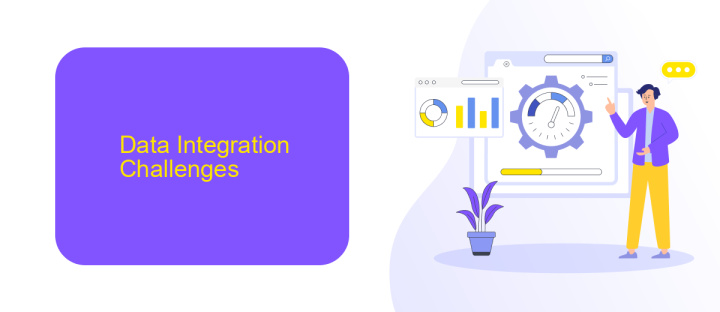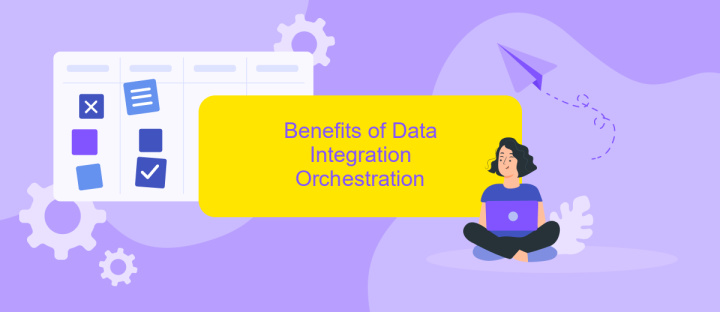Data Integration Orchestration
Data Integration Orchestration is a critical process in modern data management, enabling seamless coordination and automation of data flows across diverse systems. By integrating disparate data sources, it ensures consistency, accuracy, and accessibility, empowering organizations to make informed decisions. This article explores the key concepts, benefits, and best practices of data integration orchestration, highlighting its role in optimizing data-driven operations.
Introduction
Data integration orchestration is a critical component in modern data management, ensuring seamless connectivity and efficient data flow between disparate systems. As organizations increasingly rely on diverse data sources, the need for robust orchestration solutions becomes paramount to maintain data integrity and accessibility.
- Centralized control over data workflows
- Automated data synchronization across platforms
- Scalability to handle growing data volumes
- Real-time data processing and transformation
- Enhanced data quality and consistency
One effective tool for achieving these objectives is ApiX-Drive, a versatile service designed to simplify the setup and management of data integrations. By leveraging ApiX-Drive, organizations can automate data transfers, reduce manual intervention, and ensure that data is consistently up-to-date across all systems. This not only streamlines operations but also allows businesses to focus on deriving actionable insights from their data, driving better decision-making and operational efficiency.
Data Integration Challenges

Data integration is fraught with numerous challenges, primarily due to the diversity and volume of data sources. One significant hurdle is data inconsistency, where differing formats and standards across systems complicate seamless integration. Additionally, data silos create isolated pockets of information, making it difficult to achieve a unified view of data. The complexity of integrating legacy systems with modern applications further exacerbates these issues, often requiring specialized tools and expertise.
Another major challenge is ensuring data quality and accuracy during the integration process. Inaccurate or incomplete data can lead to erroneous insights and decision-making. Security and compliance concerns also arise, particularly when integrating sensitive data across multiple platforms. Tools like ApiX-Drive can simplify some of these challenges by providing automated workflows and real-time data synchronization, ensuring consistent and accurate data transfer. However, even with such tools, careful planning and execution are crucial to overcoming the myriad challenges associated with data integration.
Benefits of Data Integration Orchestration

Data integration orchestration offers numerous advantages for businesses and organizations looking to streamline their data processes. By automating and managing data flows, companies can achieve higher efficiency, accuracy, and consistency in their data handling activities.
- Improved Efficiency: Automating data integration reduces manual tasks, saving time and resources.
- Enhanced Data Quality: Consistent data processing ensures high-quality, reliable data across systems.
- Scalability: Orchestration tools allow for easy scaling of data processes as business needs grow.
- Centralized Management: A single platform to manage all data integrations simplifies oversight and control.
- Cost Savings: Reducing manual intervention and errors leads to significant cost reductions over time.
Services like ApiX-Drive facilitate the setup and management of data integrations, offering user-friendly interfaces and robust automation capabilities. These tools help businesses seamlessly connect disparate systems, ensuring that data flows smoothly and efficiently between applications. Overall, data integration orchestration is a critical component for modern data management strategies, driving operational excellence and data-driven decision-making.
Key Considerations for Data Integration Orchestration

When orchestrating data integration, it is essential to consider several key factors to ensure a seamless and efficient process. One of the primary considerations is the compatibility of different data sources and systems, as they need to work harmoniously to maintain data integrity and accuracy.
Another critical aspect is the scalability of the integration solution. As businesses grow, the volume of data and the number of data sources will likely increase, necessitating a solution that can scale accordingly without compromising performance.
- Data Source Compatibility: Ensure all systems and data sources can integrate smoothly.
- Scalability: Choose a solution that can grow with your data needs.
- Data Security: Implement robust security measures to protect sensitive information.
- Automation: Utilize tools like ApiX-Drive to automate data workflows and reduce manual intervention.
- Monitoring and Maintenance: Regularly monitor integration processes and perform necessary maintenance.
Incorporating a service like ApiX-Drive can significantly streamline the orchestration of data integration. It offers automation capabilities that reduce manual effort and ensure data flows seamlessly between different systems. By considering these factors, businesses can achieve efficient and reliable data integration orchestration.
- Automate the work of an online store or landing
- Empower through integration
- Don't spend money on programmers and integrators
- Save time by automating routine tasks
Conclusion
Data Integration Orchestration plays a crucial role in streamlining business processes by ensuring seamless data flow between various systems and applications. Through effective orchestration, organizations can achieve higher efficiency, reduce manual errors, and make more informed decisions. The integration of APIs and automation tools, such as ApiX-Drive, further enhances this process, enabling businesses to connect disparate systems effortlessly and maintain data consistency.
In conclusion, the strategic implementation of Data Integration Orchestration is vital for any organization aiming to leverage its data assets fully. By utilizing advanced tools like ApiX-Drive, businesses can automate complex workflows, enhance data accuracy, and ultimately drive growth. As technology continues to evolve, the importance of robust data integration solutions will only increase, making them indispensable for achieving operational excellence and competitive advantage.
FAQ
What is Data Integration Orchestration?
Why is Data Integration Orchestration important?
How can I automate data integration processes?
What are the key features to look for in a Data Integration Orchestration tool?
Can I integrate cloud-based applications with on-premises systems?
Strive to take your business to the next level, achieve your goals faster and more efficiently? Apix-Drive is your reliable assistant for these tasks. An online service and application connector will help you automate key business processes and get rid of the routine. You and your employees will free up time for important core tasks. Try Apix-Drive features for free to see the effectiveness of the online connector for yourself.


